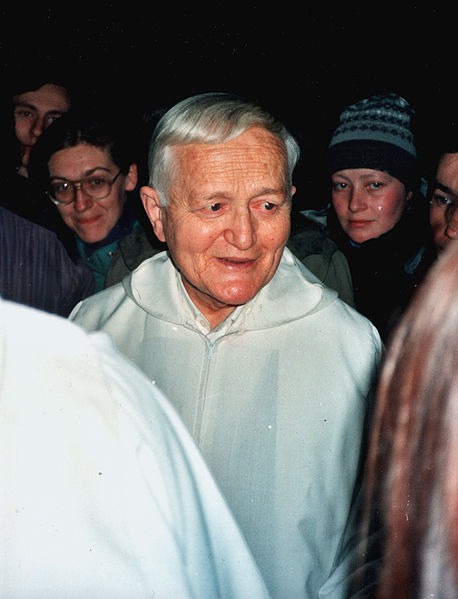The Templeton Prize is an annual award granted to a living person, in the estimation of the judges, "whose exemplary achievements advance Sir John Templeton's philanthropic vision: harnessing the power of the sciences to explore the deepest questions of the universe and humankind's place and purpose within it." It was established, funded and administered by John Templeton starting in 1972. It is now co-funded by the John Templeton Foundation, Templeton Religion Trust, and Templeton World Charity Foundation, and administered by the John Templeton Foundation.
Bernard d'Espagnat receiving the Templeton Prize from the Duke of Edinburgh in 2009
Image: Mother Teresa 090
Image: Mk Frère Roger
Image: Radhakrishnan
John Templeton Foundation
The John Templeton Foundation is a philanthropic organization that reflects the ideas of its founder, John Templeton. Templeton became wealthy as a contrarian investor, and wanted to support progress in religious and spiritual knowledge, especially at the intersection of religion and science. He also sought to fund research on methods to promote and develop moral character, intelligence, and creativity in people, and to promote free markets. In 2008, the foundation was awarded the National Humanities Medal. In 2016, Inside Philanthropy called it "the oddest—or most interesting—big foundation around."
Mother Teresa received the inaugural Templeton Prize in 1973.
Marcelo Gleiser won the Templeton Prize in 2019.
The Black Hole Initiative at Harvard University received a Templeton Foundation grant of over seven million dollars in 2016.
A grant of over three million dollars to the Stone Age Institute supports the study of what factors led human ancestors to things such as toolmaking.








